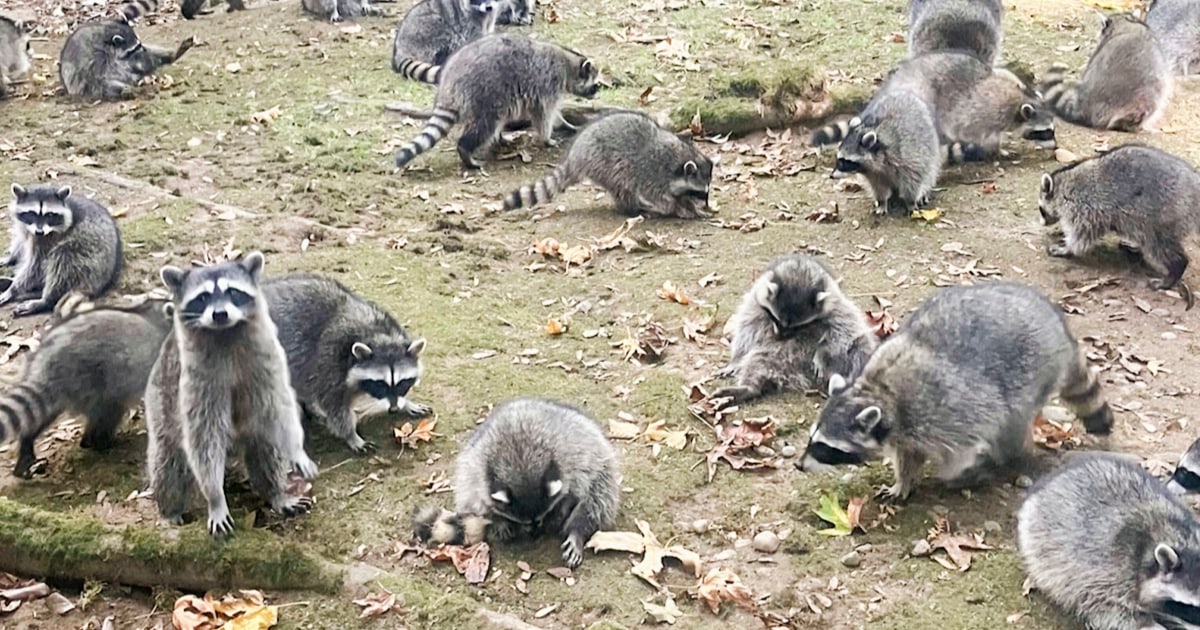The idea of around 100 black and white animals flocking to your house might conjure images of lovable dalmatians and Cruella De Vil. Not so for one Washington state woman, who called 911 after her home was swarmed by scores of hungry raccoons.
The unidentified woman from the city of Poulsbo, across the Puget Sound from Seattle, said she started feeding local raccoons 35 years ago with no problem, police told NBC affiliate KUSA on Monday.
“Somehow the word got out in raccoon land and they all showed up to her house expecting a meal,” said Kevin McCarty, a spokesperson for the Kitsap County Sheriff.
Six weeks ago the problem “exploded,” McCarty said, adding that the woman called deputies last Thursday after around 100 of the pesky varmints were preventing her from entering her own home.
Officers “were shocked,” he said. “They had never seen that many raccoons in one place. Nobody ever remembers being surrounded by a swarm of raccoons. This was a first.”
No wild raccoons in Washington have recently been diagnosed with rabies — a disease that kills almost every human it infects, according to the Washington State Department of Health. However the state does have rabid bats that can transmit the disease to other mammals, and raccoons sometimes carry other infections such as raccoon roundworm.
These notoriously curious critters seem to have a habit of getting themselves into comedic scrapes that make the news. In May, one invaded the field at a Major League Soccer game between that Philadelphia Union and New York City FC.
While that occasion caused much mirth, neighbors in Washington were not pleased with the mass of masked marauders.
“My dogs have gotten in a scuffle several times with a raccoon” and “I’ve even had to take one of my dogs to the vet,” Wendy Cronk, who lives nearby, told KUSA. “I just hope that somebody steps in and helps her take care of this problem. And hopefully she’ll quit doing it.”
No one was bitten during the call-out, police said, adding that they referred the woman to the Washington Department of Fish and Wildlife. She told them that a trapping company had quoted her $500 per raccoon — $50,000 total — to deal with the problem.
“At this point, it’s been determined that the raccoons haven’t committed any crimes,” McCarty told the affiliate, before adding a more serious moral coda.
“It’s pretty simple,” he said. “Don’t feed wild animals. When wild animals have a reliable food source, they’re going to keep coming back to it. And that’s what these raccoons did until the number of raccoons expecting a meal got out of hand.”

Leave a Reply